
Held at Cipriani Wall Street, the event brought together economists, business leaders, and Grandmasters for a day of discussions and chess.
Following the World Corporate Chess Championship in New York this summer, FIDE brought the World Rapid and Blitz event to the Big Apple which, this year, also featured a conference on chess and business. The event highlights the International Chess Federation’s (FIDE) growing efforts to build meaningful connections between chess and the corporate world.

The day commenced with a chess tournament featuring participants from the banking and finance sectors. This was followed by keynote speeches and panel discussions exploring the synergies between chess and business decision-making.
Chess principles in corporate strategy
Timur Turlov, CEO of Freedom Holding Corp and the event’s sponsor spoke about how his company applies chess principles to their operations.
Turlov noted the importance of building trust between clients: “Trust is the cornerstone of any system, much like the king in chess. Without trust, everything else collapses,” he explained.

Turlov elaborated on how chess-style data-analysis and secure information sharing fosters loyalty and trust, serving as the foundation for his company’s client solutions.
AI and Chess: Insights from Kaggle’s CEO
J.D. Sculley, CEO of Kaggle, highlighted the role chess played in advancing artificial intelligence. “With more chess positions than atoms in the universe, brute force is no solution—efficiency and clever strategies drive progress,” he remarked.
Sculley referenced AlphaZero’s revolutionary approach to chess, which combined computational power with nuanced strategies, as a prime example of innovation.

Sculley also detailed Kaggle’s collaboration with FIDE and Google during the World Championship Match in Singapore. This partnership demonstrated AI’s expanding role in chess, offering lessons that extend into broader industries, from predictive analytics to automated decision-making.
How chess helped Boaz Weinstein “fish” the “London Whale”
Boaz Weinstein, hedge fund manager and founder of Saba Capital Management, shared a story about how chess helped him uncover irregular trading patterns that led to exposing the “London Whale” at J.P. Morgan in 2012, a famous case which made headlines across the world.
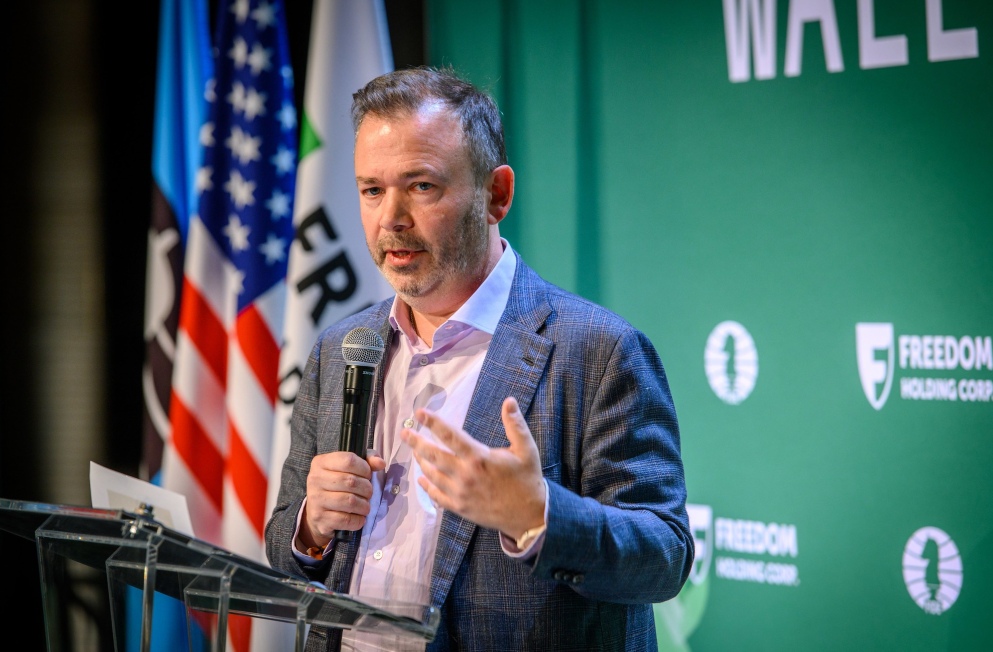
“I discovered him because I saw some pattern that looked weird to me with what was happening on the very last day of the month with the volume and the price,” Weinstein recalled.
Weinstein explained that chess played a role in recognizing the unusual patterns and tracking them, which allowed him to plan and execute his move which ended up shaking the financial world.
Drawing parallels between finance and chess, he noted, “Investing is not about winning; it’s about handling losing. Sometimes you don’t have to be right. That often depends on the symmetry.”
Kenneth Rogoff: Chess as a model for economic innovation
Kenneth Rogoff, Grandmaster and Harvard economist, highlighted the relevance of chess as a model for innovation.
“Chess taught me to think in a disciplined, strategic way, which is essential in economics and finance,” Rogoff said.
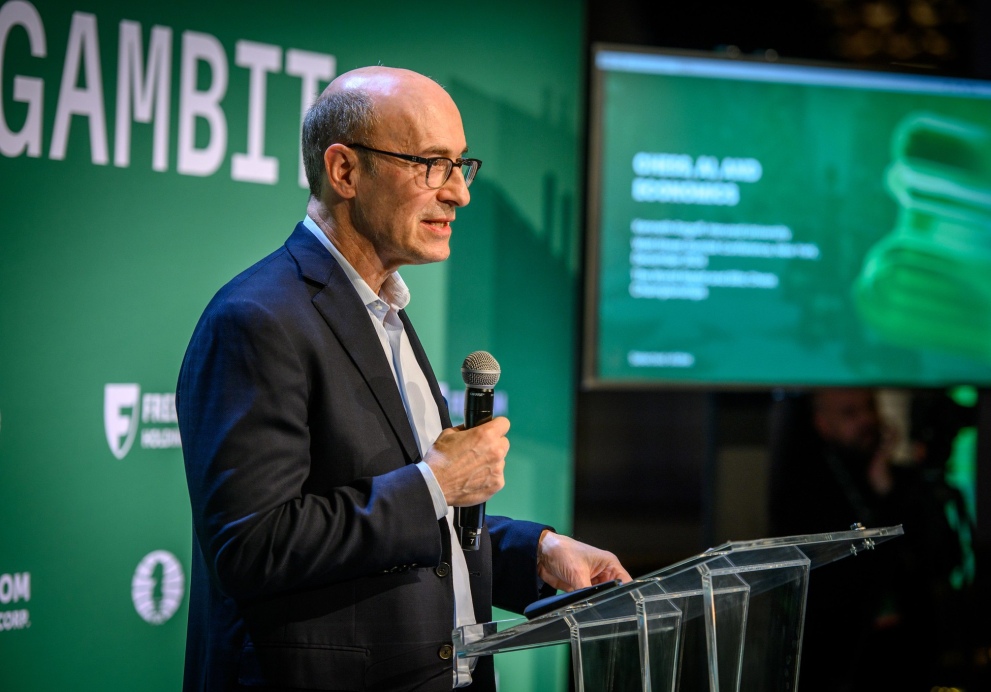
He examined how AI, spurred by developments in chess, has transformed economic models and financial systems.
“The lessons from chess databases and artificial intelligence remind us how data can transform decision-making—not just in chess, but also in economics and finance,” he observed.
Rogoff, who was the Chief Economist at the IMF between 2001 and 2003, described how his chess background helped him anticipate risks and strategize during the 2007–2012 global financial crisis.
Efficiency and pattern recognition: A roundtable on chess and finance
A roundtable discussion brought together FIDE CEO Emil Sutovsky and other keynote speakers to explore the parallels between chess and finance. Sutovsky emphasized the importance of efficiency in both domains. “While many think chess is about thinking and calculating a lot, often it is about optimizing and finding the most efficient approach in a given time.”
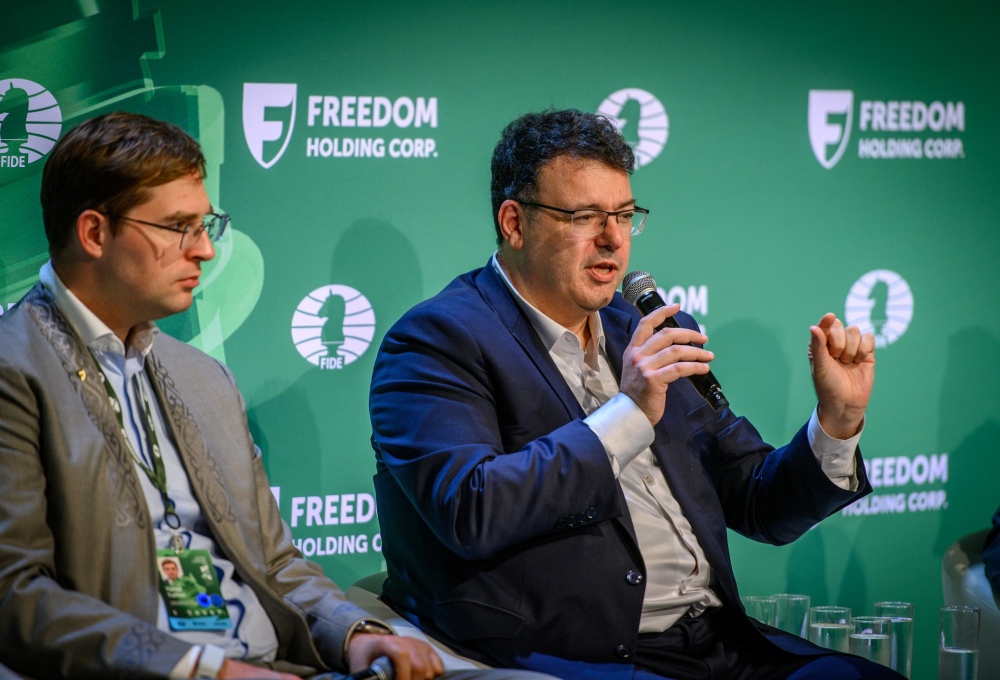
Sutovsky also highlighted the role of pattern recognition in distinguishing good players from elite ones. In finance, this skill translates to identifying nuanced market trends and making informed decisions.
The panel also debated intuition versus calculation, with all agreeing that balancing these elements is crucial for defensive strategies in both chess and finance.
From the boardroom to the chessboard
The evening concluded with a unique chess exhibition. Business leaders faced none other than the World Number One Magnus Carlsen, former World Champion Vishy Anand and U.S. Champion Fabiano Caruana in blitz games.
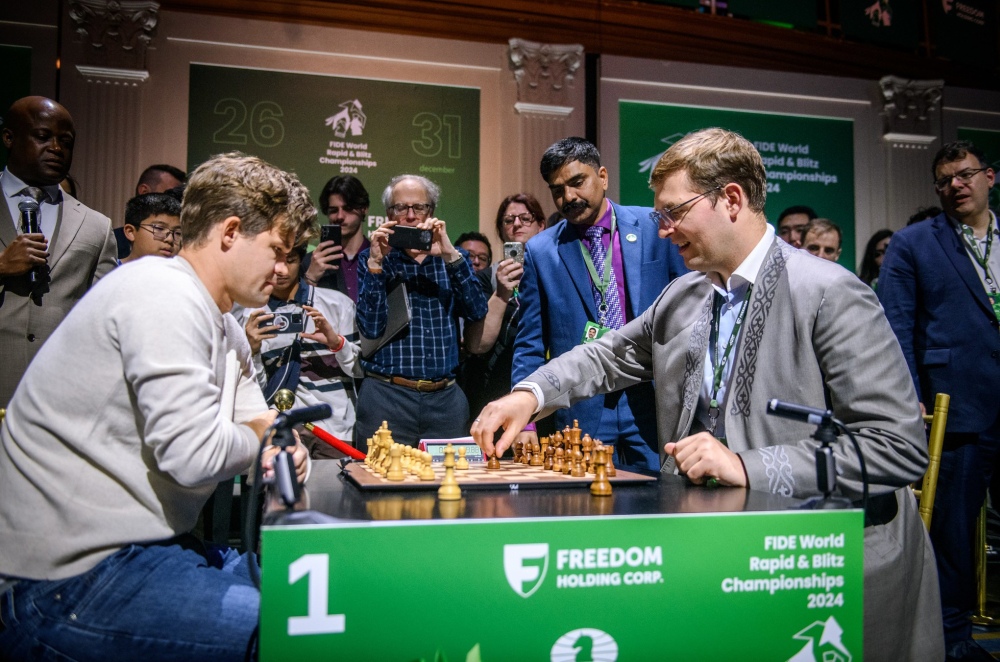
The twist? The guests had five minutes on their clocks, while the Grandmasters were restricted to just one minute. The audience cheered as Anand, once renowned for his speed, lost on time—his only defeat of the night.
The games were accompanied by live commentary from Grandmaster Maurice Ashley and Woman Grandmaster Keti Tsatsalashvili, providing an entertaining and educational capstone to the event.
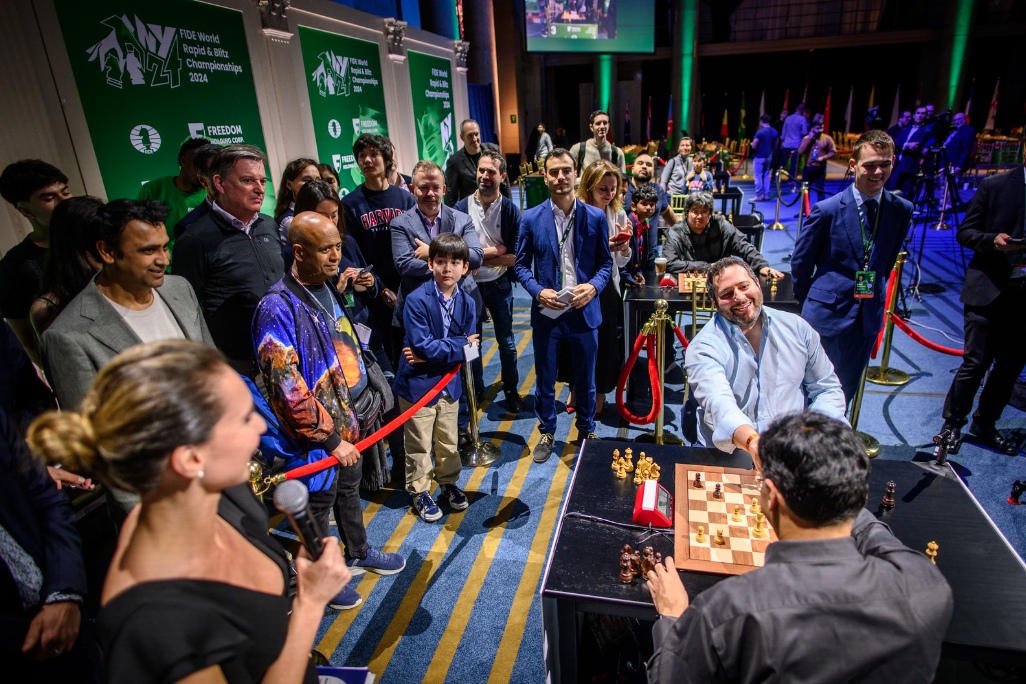
Bridging two worlds
The Wall Street Gambit Conference serves as an example of the connections between chess as a sport and the wider society, highlighting that it is much more than a game of intellect.
As chess continues gaining prominence globally, events such as this one show that is has more to offer as it looks to further expand its global reach.
Written by Milan Dinic
Photos: Lennart Ootes and Michal Walusza


